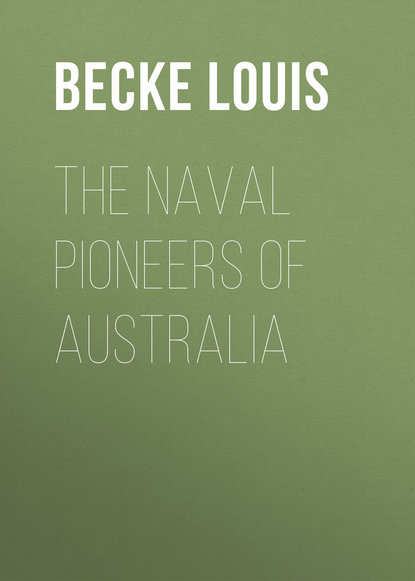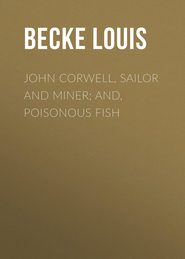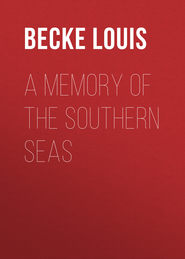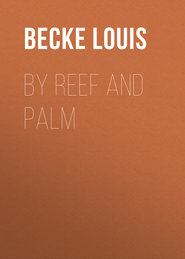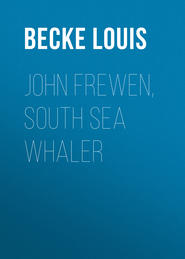По всем вопросам обращайтесь на: info@litportal.ru
(©) 2003-2024.
✖
The Naval Pioneers of Australia
Настройки чтения
Размер шрифта
Высота строк
Поля
The French expedition under Baudin called at Port Jackson to refresh, and certain matters in connection with their visit are worth telling. Two unfortunate incidents occurred: one an accusation against the French officers of selling on shore certain liquor King had given them permission to purchase from a merchantman for the use of their ships' companies; another incident was the manner of hoisting the English ensign on board one of the French ships, which was "dressed" for a holiday. Baudin explained these matters easily enough. The flag was wrongly hoisted by accident, and the accusation for selling liquor was unfounded, and certain officers of the New South Wales Corps who made the statements did not come out of the affair very creditably.
But the most noteworthy incident is explained in this extract from a letter dated Sydney, May 9th, 1803, from King to Sir Joseph Banks:—
"Whilst the French ships lay here I was on the most friendly footing with Mons'r Baudin and all his officers. Entre nous, he showed me and left with me his journals, in which were contained all his orders from the first idea of his voyage taking place, and also the whole of the drawings made on the voyage. His object was, by his orders, the collection of objects of natural history from this country at large and the geography of Van Diemen's Land. The south and south-west coast, as well as the north-west and north coast, were his particular objects. It does not appear by his orders that he was at all instructed to touch here, which I do not think he intended if not obliged by distress. With all this openness on his part, I could only have general ideas on the nature of their visit to Van Diemen's Land. I communicated it to Mons'r Baudin, who informed me that he knew of no idea that the French had of settling on any part or side of this continent. They had not been gone more than a few hours when a general report was circulated that it had been the conversation of the French officers that Mons'r Baudin had orders to fix on a place for a settlement at Van Diemen's Land, and that the French, on receiving his accounts, were to make an establishment at 'Baie du Nord,' which, you will observe, in D'Entrecasteaux's charts is what we call 'Storm Bay Passage,' and the French 'Canal D'Entrecasteaux.' It seemed one of the French officers had given Colonel Paterson a chart, and described the intended spot."
So King sent for the colonel, and then,
"without losing an instant, a colonial vessel was immediately equipped and provided with as many scientific people as I could put into her, and despatched after Mons'r Baudin. The instruction I gave the midshipman who commanded her was to examine Storm Bay Passage and leave His Majesty's colours flying there with a guard, and that it was my intention to send an establishment there by the Porpoise. This order, you will observe, was a blind, and as such was to be communicated to Mons'r Baudin, as my only object was to make him acquainted with the reports I had heard, and to assure him and his masters that the King's claim would not be so easily given up. The midshipman in the Cumberland had other private orders not to go to Storm Bay Passage, but to follow the French ships as far as King's Island, and that he was to make the pretext of an easterly wind forcing him into the straits, and as he was enjoined to survey King's Island and Port Phillip, that service he should perform before he went to Storm Bay Passage.
"This had the desired effect. He overtook Geographe and Naturaliste at King's Island the day the Naturaliste parted company with the Geographe on the former returning to France, and as an officer of the colony was going passenger in her, the mid. was instructed to give him privately a packet for the Admiralty and Lord Hobart, in which, I believe, was one for you. These letters contained the particulars. The mid. was received by Mons'r Baudin with much kindness. In the latter's answer to me he felt himself rather hurt at the idea that 'had such an intention on his part existed, that he should conceal it.' However, he put it on the most amicable footing, altho' the mid. planted His Majesty's colours close to their tents, and kept them flying during the time the French ships stayed there."
Notwithstanding their first little differences, King and Baudin parted the best of friends, and to an orphan asylum established by King in Sydney, Baudin sent a donation of £50; but King's action in sending the Cumberland after him struck the Frenchman in a different light. He wrote to King telling him that if he had wanted to annex Van Diemen's Land he would have made no secret of it, that Tasman anyhow had not discovered it for the benefit of Englishmen only, and that—
"I was well convinced that the arrival of the Cumberland had another motive than merely to bring your letter, but I did not think it was for the purpose of hoisting the British flag precisely on the spot where our tents had been pitched a long time previous to her arrival. I frankly confess that I am displeased that such has taken place. That childish ceremony was ridiculous, and has become more so from the manner in which the flag was placed, the head being downwards, and the attitude not very majestic. Having occasion to go on shore that day, I saw for myself what I am telling you. I thought at first it might have been a flag which had served to strain water and then hung out to dry; but seeing an armed man walking about, I was informed of the ceremony which had taken place that morning. I took great care in mentioning it to your captain, but your scientists, with whom he dined, joked about it, and Mr. Petit, of whose cleverness you are aware, made a complete caricature on the event. It is true that the flag sentry was sketched. I tore up the caricature as soon as I saw it, and gave instructions that such was not to be repeated in future."
Towards the latter end of 1803 King grew very tired of the petty annoyances of the officers of the New South Wales Corps, and he wrote home asking that either a commission should be appointed to inquire into the government of the colony, or that he should be permitted to go to England himself and report upon the state of affairs. With the letter he sent home copies of lampoons which he alleged were anonymously written and circulated by officers of the regiment. Here is a sample of one:—
EXTEMPORE ALLEGRO
"My power to make great
O'er the laws and the state
Commander-in-Chief I'll assume;
Local rank, I persist,
Is in my own fist:
To doubt it who dares to presume.
"On Monday keep shop,
In two hours' time stop
To relax from such kingly fatigue,
To pillage the store
And rob Government more
Than a host of good thieves—by intrigue.
"For infamous acts from my birth I'd an itch,
My fate I foretold but too sure;
Tho' a rope I deserved, which is justly my due,
I shall actually die in a ditch,
And be damned."
By way of reply, Lord Hobart, then at the Home Office, informed King, that although the Government had the fullest appreciation of the good service he had done, yet the unfortunate differences between himself and the officers would best be ended by relieving him of his 1805 command as soon as a successor could be chosen. The successor, in the person of Bligh, was chosen in July, 1805, and King a few months later returned to England.
In Hobart's letter to King informing him of the decision to recall him, the former refers not only to the unfortunate difference "between you and the military officers," but to the fact that these disputes "have extended to the commander of H.M.S. Glatton." Highly indignant, King replied to this in the following paragraph of a despatch dated August 14th, 1804:—
"In what relates to the commander of His Majesty's ship Glatton, had I, on his repeated demands, committed myself, by the most flagrant abuse of the authority delegated to me, by giving him a free pardon for a female convict for life, who had never landed from the Glatton, to enable her to cohabit with him on his passage home, I might, in that case, have avoided much of his insults here and his calumnious invective in England; but after refusing, as my bounden duty required, to comply to his unwarrantable demands, which, if granted, must have very justly drawn on me your lordship's censure and displeasure, with the merited reproach of those deserving objects to whom that last mark of His Majesty's mercy is so cautiously extended, from thatperiod, my lord, the correspondence will evidently show no artifice or means on his part were unused to insult not only myself as governor of this colony, but the military and almost every other officer of the colony."
There is, of course, another side to this. Captain Colnett, of the Glatton, asked for the woman's pardon on the ground that she had supplied him with information which enabled him to anticipate a mutiny of the convicts on the passage out. On the return of the Glatton to England, the St. James Chronicle informs its readers that at a dinner at Walmer Castle Colnett dined with William Pitt. Perhaps over their wine the two discussed Governor King, and hence perhaps Hobart's letter of recall.
During King's period of office there were, besides the Irish rebels, many prisoners whose names are famous, or infamous, in story. Pickpocket George Barrington, who came out in Governor Phillip's time, once the Beau Brummel of his branch of rascality, had settled down into a respectable settler, and was in King's government, superintendent of convicts, at £50 a year wages. Sir Henry Browne Hayes, at one time sheriff of Cork city, was sent out for life in King's time for abducting a rich Quaker girl; he was pardoned, and returned to England in 1812, leaving behind him a fine residence which he had built for himself, and which 1808 is still one of the beauty spots at the entrance of Sydney harbour.
Margarot, one of the "Scotch martyrs," also fell foul of King, who sent him to Hobart for seditious practices. The governor seems to have punished Scotch and Irish pretty impartially, for Hayes and Margarot were coupled together as disturbing characters and both sent away.
The "martyrs," it will perhaps be remembered, were Muir, Palmer, Skirving, Gerald, and Margarot, transported at Edinburgh for libelling the Government in August, 1793, and most harshly dealt with, as everyone nowadays admits.
King was a Cornishman, a native of Launceston. When he went home in 1790 he married a Miss Coombes, of Bedford. By this lady he had several children. The eldest of them, born at Norfolk Island in 1791, he named Phillip Parker, after his old chief. This youngster was sent into the navy to follow his father's footsteps, and in a later chapter of this book he will be heard of again.
The ex-governor wrote in September, 1808, a letter from Bath.
"As this letter may probably reach you before you sail, I just write to say that I came here on Tuesday with Mr. Etheridge, on his return to London, merely to see Admiral Phillip, whom I found much better than I possibly could expect from the reports I had heard, although he is quite a cripple, having lost the entire use of his right side, though his intellects are very good, and his spirits are as they always were."
This letter was to the boy Phillip, then a year-old sailor, on the eve of his departure on a cruise in the Channel. Seven days later the writer had slipped his moorings, and years earlier than his old comrade had "gone before to that unknown and silent shore."
CHAPTER VIII.
BASS AND FLINDERS
The details of Australian sea exploration are beyond the scope of this work, but in a future chapter some reference will be made to the marvellous quantity and splendid quality of naval surveying in Australian waters.
The story of Flinders and Bass, of the work they performed, and the strange, sad ending to their lives is worth a book, much more the small space we can devote to it. Much has been written about these two men, but the best work on the subject, that written by Flinders himself, has now become a rare book, to be found only in a few public libraries, and too expensive for any but well-to-do book-lovers to have upon their shelves. The printing in New South Wales by the local Government of the records of the colony has led to the discovery of a quantity of interesting material never before published, and in this there is much relating to Flinders and Bass—so much, in fact, that the work of the two men could be described from contemporary letters and despatches, material, if not new to everyone, certainly known to very few.
The dry technicalities of the surveying work, interesting enough to the people of those places on the coasts of Australia which are now flourishing seaports, but where not a century ago Bass and Flinders landed for the first time, are too local in their interests to warrant more than a passing reference here. The bold explorers met with so many stirring adventures that the present writers can only "reel off the yarn," and let lovers of topography go, if they are so inclined, to the charts, and study how much valuable map-making, as well as exciting incident, these young men crowded into their lives.
When Hunter returned to New South Wales in the Reliance to take office as governor, he brought with him Matthew Flinders as second lieutenant; and to Sir Joseph Banks, whose influence secured the appointment, this is only one of the many debts of gratitude owed by New South Wales for his foresight and honesty in making such selections. Flinders was then twenty-one years of age. His father was a surgeon at Donington, a village in Lincolnshire.
Robinson Crusoe, so he himself tells us, sent him to sea, and his departure from home was soon followed by that of his brother Samuel. Matthew served first in the Scipio under Pasley; then he accompanied Bligh in the Providence to Tahiti, and thence to the West Indies (this was Bligh's successful bread-fruit voyage); then he was in the Bellerophon, and was present at Lord Howe's victory, "the glorious 1st of June." Two months later he left in the Reliance for Sydney.
The surgeon of the Reliance was George Bass. From his boyhood Bass wanted to be a sailor, but was apprenticed, sorely against his will, to a Boston apothecary. His father was a farmer at Sleaford, in Lincolnshire; but his mother was early left a widow. The lad served his apprenticeship, duly walked the hospitals, and his mother spent most of her small substance in starting him in business as a village apothecary in his native county. Then, like so many before and since his time, unable to overcome his first infatuation, he threw all his shore affairs to the wind and obtained an appointment to the Reliance.
Governor Hunter, it will be remembered, took a keen interest in the exploration of Australia, and he had for some time suspected the existence of a strait between Van Diemen's Land and the main continent. Full of desire for adventure and tired of the routine life of a penal settlement, Flinders and Bass, soon after they landed in the colony, found a new occupation in the pursuit of fresh discoveries, and Hunter willingly lent them such poor equipment as the limited resources of the colony afforded.
A month after the arrival of the Reliance at Sydney the two friends set to work, and in an eight-foot boat, which they appropriately named the Tom Thumb, went poking in and out along the coast-line, making discoveries of the greatest local value. Then began work destined to be of world-wide importance.
Take the map of Tasmania and look at a group of islands at its north-east corner; they are in what was later on to be called Bass' Straits. Among them are two named Preservation and Clarke Islands; these and Armstrong Channel commemorate the wreck of the Sydney Cove, which occurred on February 9th, 1797. The Sydney Cove was an East Indiaman bound from Bengal to Sydney; she sprang a leak, was with difficulty navigated to the spot named Preservation Island, and there beached.
The crew, many of whom were Lascars, were saved, with a few stores. Then the long-boat, with the mate, supercargo, three European seamen, and a dozen Lascars, was despatched in an endeavour to reach Port Jackson, the only occupied part of the great continent, and bring succour to their starving shipmates. They set out on the 28th February, were driven ashore; their boat was battered to pieces on the rocks, and they escaped only with their lives. This happened on the 1st of March, the scene of this second misfortune being a little distance to the north of Cape Howe, 300 miles from Sydney. These castaways were the first white men to land in what is now the colony of Victoria. (The spot where the boat was lost is just over the border.) After resting the men then all set out to march along the coast to Sydney.
Sixty days later three exhausted creatures reached Wattamolla harbour, near what is now the National Park of New South Wales, about 18 miles south of Sydney. The remainder of the castaways had dropped and died of exhaustion on the march, or had been speared by the blacks. Those who survived had purchased their lives from the savages with shreds of cloth and buttons from their ragged clothing, and had kept themselves alive with such shell-fish as they could find upon the beaches. At Wattamolla they had halted to cook a scanty meal of shell-fish, and the smoke of their fire revealed their presence to a fishing boat from the settlement at Port Jackson. The fire by which this cooking was done was made from coal found on the beach there; so reported brave Clarke, the supercargo of the Sydney Cove, who found it.
As soon as Hunter heard of the discovery he determined to examine the place. In a despatch home he says:—
"So I have lately sent a boat to that part of the coast, in which went Mr. Bass, surgeon of the Reliance. He was fortunate in discovering the place, and informed me he found a stratum six feet deep in the face of a steep cliff, which was traced for eight miles in length; but this was not the only coal they discovered, for it was seen in various places."
The place was named Coalcliff, and this was the first discovery of the great southern coalfields of New South Wales. Hunter, writing to the Duke of Portland under date of March 1st, 1798, shall tell the next incident of Bass' career:—
"The tedious repairs which His Majesty's ship 1798Reliance necessarily required before she could be put in a condition for again going to sea having given an opportunity to Mr. George Bass, her surgeon, a young man of a well-informed mind and an active disposition, to offer himself to be employed in any way in which he could contribute to the benefit of the public service, I inquired of him in what way he was desirious of exerting himself, and he informed me nothing could gratify him more effectually than my allowing him the use of a good boat and permitting him to man her with volunteers from the King's ships. I accordingly furnished him with an excellent whale-boat, well fitted, victualled, and manned to his wish, for the purpose of examining along the coast to the southward of this port, as far as he could with safety and convenience go. His perseverance against adverse winds and almost incessant bad weather led him as far south as the latitude of 40°00 S., or a distance from this port, taking the bendings of the coast, of more than 600 miles." (This, remember, was accomplished in a whale-boat.) "He coasted the greatest part of the way, and sedulously examined every inlet along the shore, which does not in these parts afford a single harbour fit to admit even a small vessel, except a bay in latitude 35°06, called Jarvis' Bay, and which was so named by one of the transport ships, bound here, who entered it, and is the same called by Captain Cook Longnose Bay. He explored every accessible place until he came as far as the sourthermost [sic: southernmost] parts of this coast seen by Captain Cook, and from thence until he reached the northernmost land seen by Captain Furneaux, beyond which he went westward about 60 miles, where the coast falls away in a west-northwest direction. Here he found an open ocean westward, and by the mountainous sea which rolled in from that quarter, and no land discoverable in that direction, we have much reason to conclude that there is an open strait through, between the latitude of 39 and 40'12 S., a circumstance which, from many observations made upon tides and currents thereabouts, I had long conjectured.
"It will appear by this discovery that the northermost [sic: northernmost] land seen by Captain Furneaux is the southernmost extremity of this coast, and lays in latitude 39.00 S. At the western extremity of Mr. Bass' coasting voyage he found a very good harbour; but, unfortunately, the want of provision induced him to return sooner than he wished and intended, and on passing a small island laying off the coast he discovered a smoke, and supposed it to have been made by some natives, with whom he wished to have an opportunity of conversing. On approaching the shore he found the men were white, and had some clothing on, and when he came near he observed two of them take to the water and swim off. They proved to be seven of a gang of fourteen convicts who escaped from hence in a boat on the 2nd of October last, and who had been treacherously left on this desolate island by the other seven, who returned northward. The boat, it seems, was too small for their whole number, and when they arrived at Broken Bay they boarded another boat [lying] in the Hawkesbury with fifty-six bushels of wheat on board; then they went off with her to the northward, leaving their old boat on shore.
"These poor distressed wretches" (the seven convicts discovered by Bass), "who were chiefly Irish, would have endeavoured to travel northward and thrown themselves upon His Majesty's mercy, but were not able to get from this miserable island to the mainland. Mr. Bass' boat was too small to accommodate them with a passage, and, as his provision was nearly expended, he could only help them to the mainland, where he furnished them with a musket and ammunition and a pocket compass, with lines and fish-hooks. Two of the seven were very ill, and those he took into his boat, and shared his provisions with the other five, giving them the best directions in his power how to proceed, the distance" (to Sydney) "being not less than five hundred miles. He recommended them to keep along the coast the better to enable them to get food. Indeed, the difficulties of the country and the possibility of meeting hostile natives are considerations which will occasion doubts of their ever being able to reach us.





